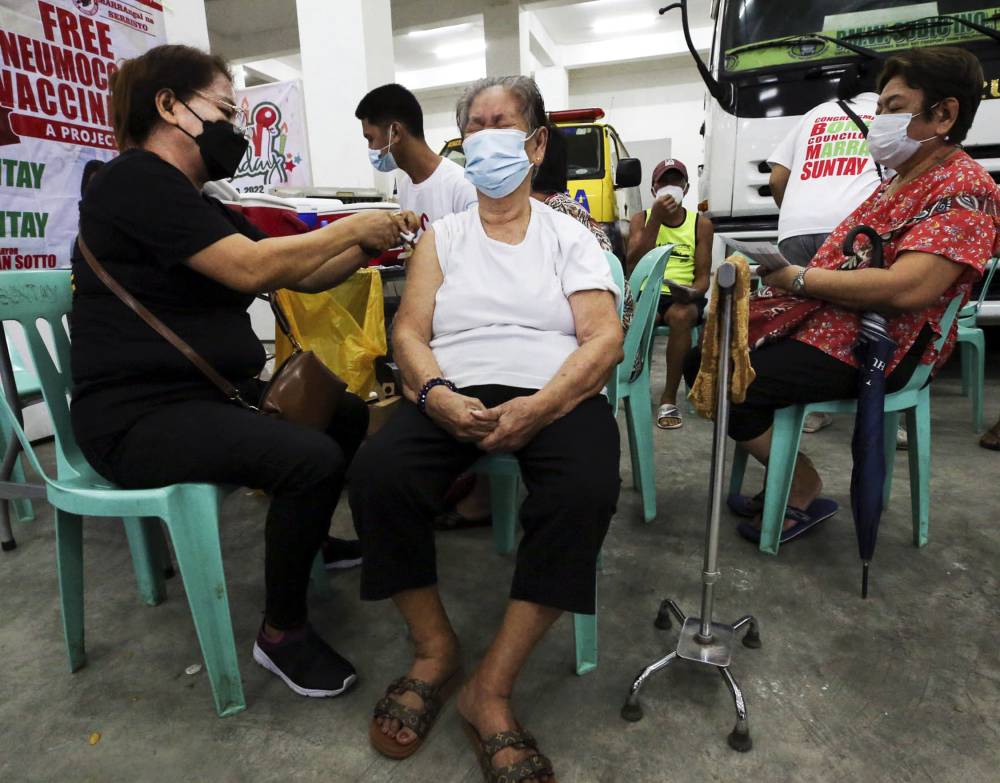Expert reminds public: 20% of flu cases fatal

Influenza may just start with colds, coughs or fever, but an infectious disease expert has warned Filipinos not to play down the respiratory illness, especially in its peak season this month, as its many complications can actually kill a person.
According to Dr. Rontgene Solante, flu cases are reported in the country throughout the year, but they peak during the so-called “respiratory virus season,” from October to February, which coincides with the cold northeast monsoon (amihan) season.
“There’s a misconception among Filipinos that flu is just a regular illness like colds that goes away on its own,” he said.
He stressed that while most of the patients who contract flu recover in five to seven days after getting enough rest, fluids and medicines, “20 to 30 percent” of these eventually develop an infection in their lungs, which is pneumonia. Those who are more at risk of flu complications include infants, senior citizens and those with existing health conditions.
“A weakened immune system fighting a strong virus leads to severe infection in the lower respiratory system, including the inflammation of the lungs. These patients admitted to the hospital need to be intubated because they already have difficulty in breathing and very low oxygen in the blood. Sometimes, because of severe pneumonia, these patients die,” Solante said.
Fatal complications
Data from the Philippine Statistics Authority showed pneumonia ranked fourth among the top causes of death in the country in 2023. It killed 44,079, or 6.3 percent of the 694,821 registered deaths in the country in that year.
Flu complications can also cause sepsis, which may lead to widespread organ failure and eventually death. Studies also suggest that patients with flu can develop heart complications, including heart attack, heart failure and death.
Solante’s warning came following the untimely death of Taiwanese actress Barbie Hsu (more popularly known as Shan Cai in the hit TV series “Meteor Garden”) at only 48 years old due to influenza-induced pneumonia while on a vacation in Japan.
Foreign media reported that before her death, Hsu and her family declined being admitted to the hospital despite showing severe health warning signs.
“Based on experience, a lot of patients and their families underestimate flu symptoms. They will only see a doctor once there are complications and it is already late,” Solante said.
‘See a doctor’
He stressed many were wary of being admitted to hospitals due to the foreseen high cost of treatment.
His advice: “If your flu symptoms do not go away in five days, it’s better to see a doctor, whether you are a healthy individual or you have no comorbidities, but more so if you are an elderly, with heart diseases or diabetes, or an alcoholic beverage drinker.”
“The doctors need to see you, and through laboratory tests, they will be able to properly diagnose and see the extent of the infection,” he added.
Based on its latest data, the Department of Health (DOH) logged a total of 5,789 cases of influenza-like illnesses (ILIs) from Jan. 1 to Jan. 18, which is 54 percent lower than the 12,620 cases during the same period last year.
Only one death was reported during the period compared to 26 deaths recorded last year.
ILIs are a group of illnesses with common symptoms that include fever, cough, sore throat, colds, body aches and headaches. In the country, the top cause of ILIs are influenza A and B viruses, rhinovirus, enterovirus, respiratory syncytial virus and adenovirus.
Vaccination remains the best tool to prevent contracting flu and its complications, according to Solante.
Flu shots are needed annually because the virus is constantly changing and new vaccines are developed annually to protect against new strains.





















